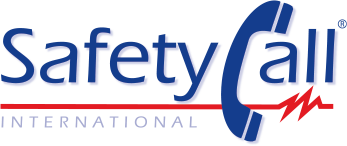Does FDA’s expectation of increased serious adverse event reports involving dietary supplements signal a safety issue with these products?
In recent months, the U.S. Food and Drug Administration (FDA) has been advising dietary supplement companies to review their SOPs regarding adverse event documentation and reporting of serious adverse events to the FDA. FDA believes that there are good indications that under reporting of adverse events is a real problem. This comes on the heels of FDA current good manufacturing practice (cGMP) audits of dietary supplement companies that have revealed noncompliance issues in up to 70% of companies audited. FDA officials have also wondered if cGMP noncompliance may be giving rise to adverse events due to manufacturing issues with dietary supplements.
FDA is expecting that reports of serious adverse events involving dietary supplements will increase to over 8,000 events within the next 2 to 3 years from current levels of about 2,500 and would more appropriately represent the number of expected adverse events reported to FDA in any given year considering the amount of dietary supplement products that are in the market today (Federal Register, Volume 77, Number 57). Do these kinds of numbers signal that there is a safety issue with dietary supplements and that people are routinely being injured by using them? No, numbers like these really shouldn’t alarm people. A passive system of surveillance that largely contains reports from consumers to the manufacturer is expected to get lots of hits if it’s truly sensitive.
Are people actually being injured by dietary supplements? No, in fact the vast majority of events that SafetyCall has documented on behalf of dietary supplement companies are really quite minor for the most part and include things like stomach upset, diarrhea or headache. And, the effects are typically mild and self-limiting with no need for any specific treatment. We have to remember that the numbers also include unconfirmed reports of product use and suspected adverse effects from product use, many of which have very reasonable explanations unrelated to the use of the supplement.
There are still questions of whether or not dietary supplement companies will step up to the plate and increase their surveillance efforts and do a better job of documenting adverse events including those that are deemed “serious” adverse events, and report them to FDA as required by law. We’ve seen an increase in dietary supplement companies coming to SafetyCall to seek assistance in evaluating their adverse event management system to make sure they are in full compliance. Many of those companies end up having us put a system in place for them, something that Congress anticipated would be done by many supplement companies that do not have medical or toxicology experts on their staff.
Another reason for the anticipated increase of adverse event reports reaching FDA is simply due to the fact that FDA is stepping up compliance and enforcement and this addresses the issue of under-reporting. FDA has been routinely visiting companies to conduct GMP audits and during those visits, review of a company’s adverse events system is at the top of their list. This is due to the fact that adverse events might be an indication of a manufacturing issue and the postmarket surveillance system is expected to be that safety net to detect and ultimately prevent a manufacturing issue from getting out of hand and hurting consumers. In my opinion, this is probably a good time for all supplement company management teams to conduct a critical review of their AE system,…. before FDA does.
Why is having a robust surveillance system important to the dietary supplement industry? There are few pre-market clinical trials that are conducted with dietary supplements and many of the products are complex proprietary blends of multiple ingredients that may or may not have been studied when taken in combination with each other. Fortunately, the typical dietary supplement ingredient including common herbs and other botanicals has an inherently wide margin of safety. A robust surveillance system helps document the safety of those ingredients and the products that they are used in and puts in place a safety net, just in case. Occasionally we find a unique patient that has an unexpected reaction and that information might help prevent a similar reaction in other consumers. It’s peace of mind that if something unexpected was to occur, the manufacturer would be able to quickly discover it and take steps to protect their consumers. Having an effective postmarket surveillance system in place is not only important to regulators, it’s something that every dietary supplement company’s insurance carrier wants to see in place as well.
Rick brings over 30 years of professional experience to the SafetyCall team. His contributions are broad in the areas of clinical toxicology, pharmacology, poison control, product post-market surveillance, and drug and dietary supplement safety. He has helped to shape national policy relating to product safety in many areas and regulatory jurisdictions including, EPA, FDA, and CPSC regulated products. Rick also enjoys his academic affiliation with both the University of Minnesota College of Pharmacy and the University of Mississippi’s National Center for Natural Product Research, which is an FDA Center of Excellence. He enjoys national speaking engagements where he shares his vast knowledge of product stewardship including best practices related to adverse event post-marketing surveillance and regulatory reporting of incident data.



